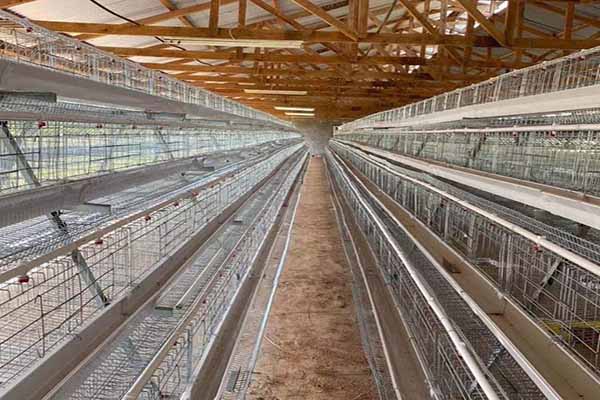Organic Poultry Farming in Kenya: A Sustainable and Profitable Venture
Time : 2025-05-13
Kenya, a country rich in diverse agricultural practices, has been gradually embracing organic farming methods. One of the most promising sectors within this movement is organic poultry farming. In this article, we’ll delve into the world of organic poultry farming in Kenya, exploring the benefits, challenges, and practical tips for those looking to get involved.
The Rise of Organic Poultry Farming in Kenya
Organic poultry farming has been gaining momentum in Kenya, driven by the increasing consumer demand for healthier and environmentally-friendly products. As people become more health-conscious, organic poultry has become a sought-after commodity in local markets and even for export.
Consumer Demand for Organic Products
The demand for organic products in Kenya is primarily driven by health and environmental concerns. Consumers are increasingly aware of the potential health risks associated with conventional farming practices, such as the use of antibiotics and synthetic hormones. Organic poultry, on the other hand, offers a healthier alternative that is free from these additives.
The Benefits of Organic Poultry Farming
Engaging in organic poultry farming comes with several benefits, not only for the farmers but also for the environment and the consumers. Let’s take a closer look at these advantages:
Environmental Benefits
Organic poultry farming is sustainable and reduces the negative impact on the environment. By avoiding the use of synthetic fertilizers, pesticides, and genetically modified organisms (GMOs), organic farms contribute to the preservation of soil health, water quality, and biodiversity. This method of farming also minimizes the use of energy, as organic fertilizers are used instead of chemical inputs.
Economic Benefits
Organic poultry farming can be a lucrative venture. With the growing demand for organic products, farmers can command premium prices for their produce. Additionally, organic certification can open up new markets and opportunities for export, providing farmers with greater financial stability.
Health Benefits
Consumers prefer organic poultry for its health benefits. Organic chickens are raised without antibiotics or hormones, which can lead to a higher quality of meat. These birds are typically raised in a more humane environment, which contributes to their overall health and well-being.
Challenges of Organic Poultry Farming in Kenya
While there are numerous benefits, organic poultry farming also comes with its set of challenges. Let’s discuss some of the key obstacles faced by farmers in Kenya:

Lack of Access to Organic Inputs
One of the primary challenges faced by organic poultry farmers in Kenya is the lack of access to organic inputs. Many farmers struggle to find quality organic feed and other essential inputs due to limited supply and high costs.
Regulatory Hurdles
Organic farming is a regulated industry, and compliance with organic certification standards can be difficult and expensive. The certification process involves rigorous inspections and audits, which can be overwhelming for small-scale farmers.
Market Access and Distribution
Access to markets is another challenge. Organic poultry farmers often face limited distribution networks, which can make it difficult to get their products to consumers. Additionally, the lack of brand recognition can hinder sales.
Practical Tips for Organic Poultry Farmers in Kenya
Despite the challenges, there are steps that organic poultry farmers in Kenya can take to succeed:
Build Relationships with Local Suppliers
One of the best ways to ensure a steady supply of organic inputs is to build strong relationships with local suppliers. By working together, farmers can secure better prices and more reliable deliveries.
Seek Organic Certification
While the certification process can be daunting, it is worth the effort. Organic certification not only helps farmers gain access to premium markets but also provides consumers with a guarantee of quality.
Expand Distribution Networks
Farmers should look for opportunities to expand their distribution networks. This could involve direct sales to local markets, participating in organic food fairs, or exploring online platforms.
Invest in Education and Training
Continuous education and training are essential for successful organic poultry farming. Farmers should stay informed about best practices, new technologies, and market trends.

Conclusion
Organic poultry farming in Kenya presents a unique opportunity for sustainable agriculture and economic growth. By addressing the challenges and embracing the benefits, farmers can create a more resilient and profitable farming system. As the demand for organic products continues to rise, organic poultry farming in Kenya is poised to play a significant role in the country’s agricultural landscape.
rise, organic poultry farming in Kenya is poised to play a significant role in the country’s agricultural landscape.











